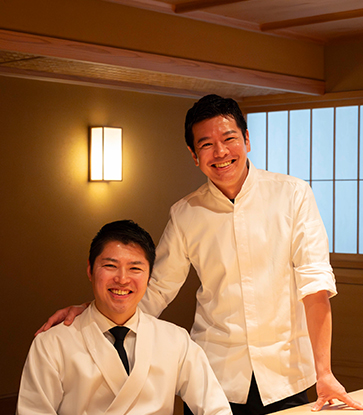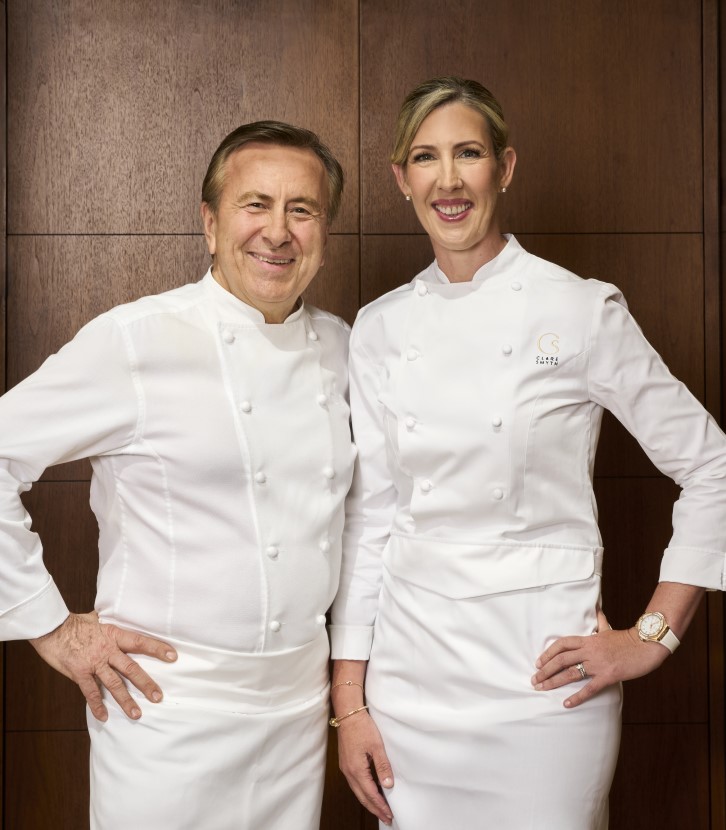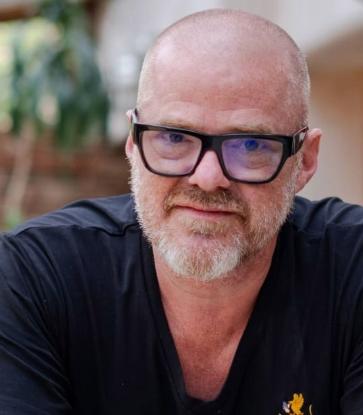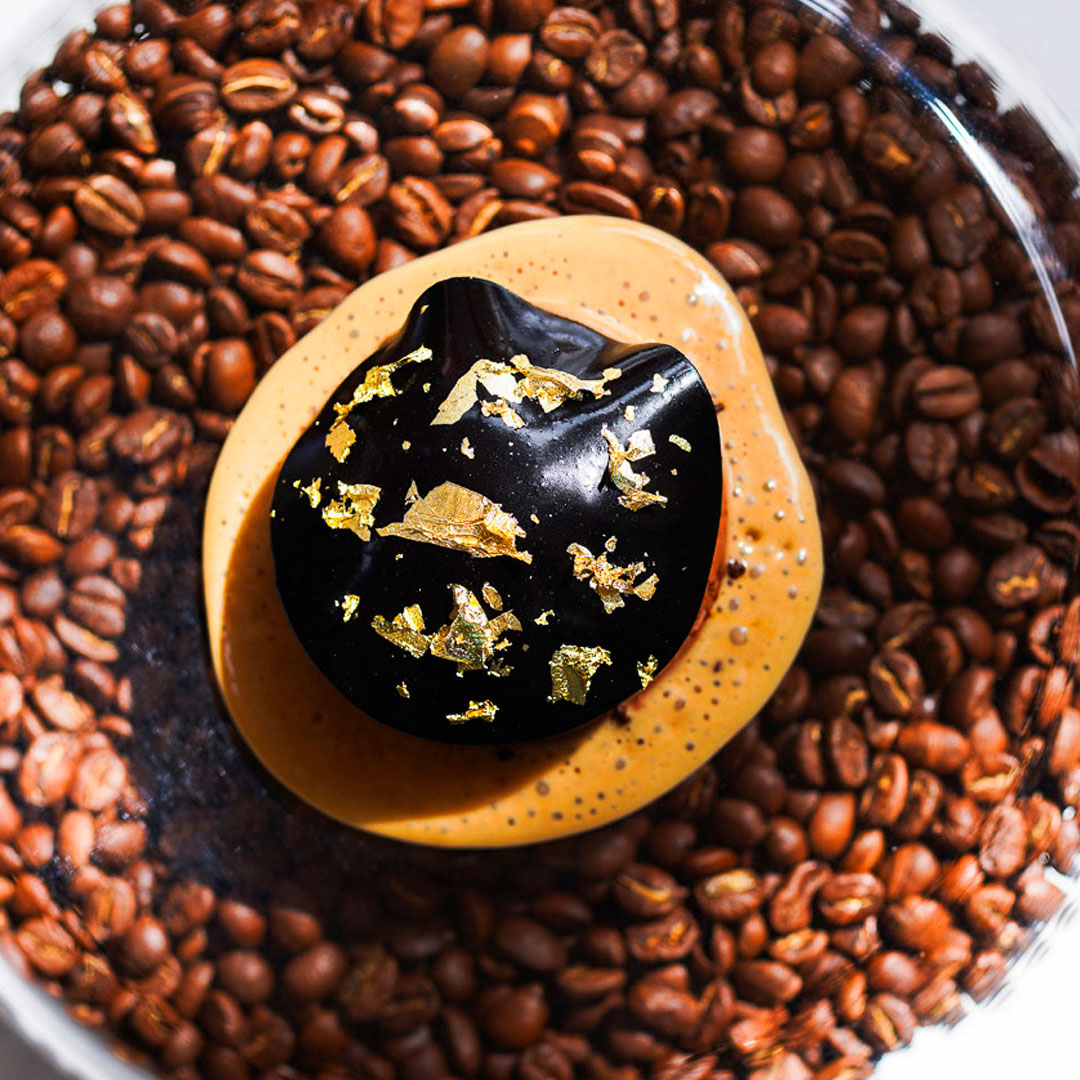Flashback to 35–40 years ago: “Supaksorn” was a name splashed across Thai media, synonymous with a celebrated writer and director who launched the careers of teen idols and left an indelible mark on Thai cinema with legendary coming-of-age films.
Fast forward to today, and the name is back in the spotlight—but this time, it’s not about scripts or screenplays. The heir to his father’s famous pen name has traded words for woks and scripts for spice, crafting culinary masterpieces with the same precision and creativity. With a pestle and mortar as his new tools, he’s rewriting the story of Thai cuisine, leading a game-changing restaurant that’s making history on the global stage.
With his gentlemanly, unassuming manner, he has often been quietly labelled a preppy restaurant owner—one who doesn’t cook. Though initially seen as an untrained chef in a competitive industry, Supaksorn “Ice” Jongsiri proved his critics wrong. He made history by becoming the first man to lead a Thai restaurant to Three MICHELIN Stars.
“I remember saying to a friend at one of the global award ceremonies, where I saw many chefs going up to accept accolades—including Thai food cooked by a non-Thai person—‘If no Thai person wants to push real Thai food to a global level, I will,’” Jongsiri, the chef-owner and mastermind of Sorn, firmly shared with us back in 2023.
Little did he know, he would soon raise the Thai red, white, and blue flag high for the Land of Smiles, leading the Sorn team as the world’s first Thai restaurant to earn the highest accolade in the 8th edition of The MICHELIN Guide Thailand 2025 edition.
Born into a showbiz family, Jongsiri spent much of his childhood with his Southern Thai grandmother. Helping in the kitchen, he became her trusted assistant, inspired by the homely, flavourful dishes she made. Thirty years ago, his father opened 'Baan Ice,' a small restaurant in Prachaniwet, northern Bangkok, marking the start of their culinary journey. Jongsiri notes that his grandmother, a retired teacher, never pressured him to pursue cooking, despite the restaurant being named after him.
As a child, becoming a chef was never his goal, but cooking with his grandmother brought him joy—far more than naps or lessons. Visits to her in Nakhon Si Thammarat immersed him in traditional Southern Thai recipes. For him, cooking was always playtime, with her as the master chef. It was the love shared between a grandmother and her grandson, passed down through generations.
While studying design in the US during the Tom Yum Kung economic crisis, he worked in a Boston restaurant to support himself. Returning to Thailand, he expanded his grandmother’s humble restaurant into multiple branches. Today, his passion has led to Sorn, a fine dining venture where he hopes to leave a legacy for his children, Nam Khaeng (Ice) and Cream—just as his grandmother left him with a love for food that will last a lifetime.
We caught up with Jongsiri, or Chef Ice, the man of the hour—an untrained cook whose journey from humble beginnings to culinary greatness is nothing short of extraordinary. Alongside a team of passionate, untrained chefs, he has elevated Southern Thai cuisine, sharing its rich flavours with the world and earning a place at the pinnacle of Thailand’s culinary scene. His meteoric rise is a testament to the power of love for family, dedication, and a deep-rooted connection to tradition—proving that sometimes, the heart knows the way even when the hands are yet to learn.
“One day, my son will learn about the first man who landed on the moon. But he’ll also learn that his dad was the first Thai who landed Three MICHELIN Stars.”

How do you feel now that Sorn has been awarded Three MICHELIN Stars?
“Honestly, I feel incredibly proud of myself and want to thank everything that has happened in my life so far. I’m deeply grateful to everyone around me—seeing my children healthy, my lovely wife by my side, having enough to live comfortably, and a wonderful team supporting me and sharing my dream. If you look at the board in the restaurant, you’ll see people who source ingredients for us. It’s not just about knowing where the ingredients come from—it’s about knowing who they come from. This connection fills me with immense pride and gratitude.“I want to thank Thailand, my parents, and every guest who made this dream a reality. Was I hoping for it? It would be a lie to say no. Once you achieve Two Stars, who wouldn’t hope for more? But we give our best every day, and none of this would’ve been possible without my team or family. And now we’ve reached Three MICHELIN Stars—the pinnacle of the restaurant world. And we did it. It’s surreal. This is madness!”
What is your culinary philosophy?
“Our philosophy at Sorn is to cook Thai food with Thai ingredients, presented in a Thai way through passion and lost local techniques. Common dishes like stir-fried stinky beans or yellow curry can be improved without deconstructing or Westernising them. We focus on food that complements rice, not courses. I’m not good at plating like in the West. I didn’t go to culinary school but learned cooking from my grandma, and most of my team didn’t attend big cooking schools but are descendants of Southerners, bringing back the charm of pestles, coal, and clay pot cooking. I see that we borrow the fine dining concept from the West, but don’t think it’s who we are. We stay humbly Thai while showcasing our food and how we eat it on the world stage, staying true to centuries-old flavours to preserve and celebrate them.”
How do you feel about the criticism, given you didn’t graduate from culinary school, and how has it motivated you?
"I grew up in a restaurant and believe Thai cuisine doesn’t come from grand institutions. We learned from fishermen, farmers, and local eateries—those who catch crabs make the best crab curry. Culinary schools might limit the scope of Thai food. If I couldn’t cook, how would I have made it this far? People rarely praise—they criticise. But I care about my customers’ happiness. Say what you like, but can you do what I’ve achieved?"
Looking back to what you told your friend, "If no one else is going to take Thai food to that level, I'll do it myself," how does it feel now, having made that vision a reality?
"There was a time when Thai food didn’t feel truly ‘Thai’ anymore. It started to taste more like Western food with a Thai twist. When I first mentioned the idea, my friends laughed, saying, ‘How can Thai food be fine dining? Customers won’t go for it.’ But I believed in our food, the way I think it should be. I told myself, ‘If we trust our ideas…’ (cries). At that time, I had just become a father, and I wanted to follow my dreams. So, we named the restaurant after my son, and when I first spoke to him, I told myself, ‘I want to be someone he’d be proud of.’ The restaurant initially had no investors; my wife and I were putting everything we had into it. It was a huge leap to follow my dream. I’m grateful to my wife, my journey companions, and myself for believing in this vision. And I’m especially thankful to the team who helped bring it to life." Aside from the popular Phad Thai, Tom Yam and Green Curry, what would you like to tell the world about Southern Thai food?
"Thailand has a rich, diverse culture, with each region offering something unique. I chose to focus on Southern Thai food because I grew up here and am familiar with the local way of life. While Southern food is what I specialise in, Thai cuisine as a whole offers so much more to explore from the North, Central, and Eastern regions. I’m just among the first to bring Southern food to the forefront. Southern Thai food is deeply tied to the region's history, shaped by trade and the sea. It's the food of the people, making use of everything from fermentation and shrimp paste to intense spices, all meant to be eaten with rice. You'll also find influences from Malaysia, with its Muslim-majority culture, and from Chinese traders, like soy sauce and dim sum. It's a cuisine rich in variety, with endless culinary traditions. I hope, in the years to come, the world will discover the distinct differences between Thailand’s four regions, just as we Thais do."“Remember, our first meal was our mother’s milk, made with love. We should carry that love forward.”

What is the most important lesson you've learned from running a restaurant and working in the kitchen?
"Don’t lie to yourself. Be honest with yourself and your ingredients. Do your best, don’t cut corners, and don’t be sloppy. If you do, you’re cheating your customers. But if you give it your all, be proud of it. Looking back at our old dishes, I think, ‘What the heck was that?’ When you cook, you need to do it with love. Think about the first time you cooked—not for money or fame, but to feed your family and friends. We need to hold onto that feeling. It’s not easy, but whether we cook for beauty, taste, or whatever it is, we must love and respect our customers and ourselves. Remember, our first food was our mother’s milk, made with love. That’s our first meal, and we should carry that love forward."What would you like to say to your grandmother or your children?
“When my late grandma could still communicate, she always told me to think of the people eating the food before money. It’s a principle I’ve carried with me in running the restaurant to this day. As a teacher, she wanted me to finish my PhD, but I focused on opening my restaurant instead. At the time, I was about to get married and didn’t even have money for an engagement ring. Now that she is gone, I want her to know, through my tears, that I made it. The Southern Thai food she taught me is now at its highest point. I think she’d say, ‘Well done, my child,’ and wouldn’t care about the degree."I want to tell my son that one day, I hope he has a dream of his own. Today, I’ve shown him that with a dream, effort, and never giving up, anything is possible. If you work hard enough, your dream can come true. My son once told me I'm his superhero. But I want him to know that my superpower is him, his sister, and his mother. One day, he’ll learn about the first man who landed on the moon. But he’ll also learn that his dad was the first Thai who landed Three MICHELIN Stars."

Could you describe your food in 3 words?
“Honest, Thai, and fulfilling.”What’s next for Sorn?
“We’ll focus on creating a menu for the rainy season next year. Over the seven years, the team has grown together, I feel that my core team members, like Chef Yod [Yodkwan U-pumpruk], need to grow further—perhaps open a restaurant under the Sorn name, serving Thai or Southern food to a different corner of the globe. The same could go for others in the team. My chefs Yui [Sasichai Phocharoen] or Sao [Ketsara Kaewkrajang] might open their own restaurant. I don’t hold on to these things. Sorn, or sarana in Sanskrit, is like a tree that’s growing. We’re a place of shelter for others, to help them grow too.”As a chef, what do you think you contribute to the world?
"I think if the world comes to my restaurant, I’d like to offer them a little bit of happiness." (laughs)How do you feel, having made history as the world’s first Thai restaurant to earn Three MICHELIN Stars, and as the first Thai person to achieve such success?
“I think (cries) it's enough to have my name written in history. If I can leave something like that behind, then my life will have been worth it — to be a man.”
Do you consider yourself successful?
"I never consider myself successful. My friends might say so, but what does it mean? To me, it doesn’t exist. If you say, 'This is perfect, it’s complete,' then you’re done. There’s no such thing as perfection or success because there’s always something to improve. I have OCD, and I can’t bear seeing things left unresolved. I’m the type of person who would drive to a friend’s house after seeing his new home on social media just to take that ugly sticker off the air conditioner (laughs). I like paying attention to details. I think these tiny things are what really matter. If you want to do something, why not take it as far as you can? So, if I’ve already succeeded, it means I have to stop. But I want to keep going. It has to get better, right? Because humans are always searching for perfection, even though it doesn’t really exist. So, we just have to keep going."How will you celebrate it?
“Today, I still have to work, but I’ll go home and hug my kids and wife (laughs). I’ll be serving food to the guests today, and they’ll probably be wondering what the heck I’m smiling about (laughs).”To whom would you like to dedicate this award?
“I’d like to dedicate it to Thailand because this is the place I call home.”Illustration image: © MICHELIN Guide Thailand





















